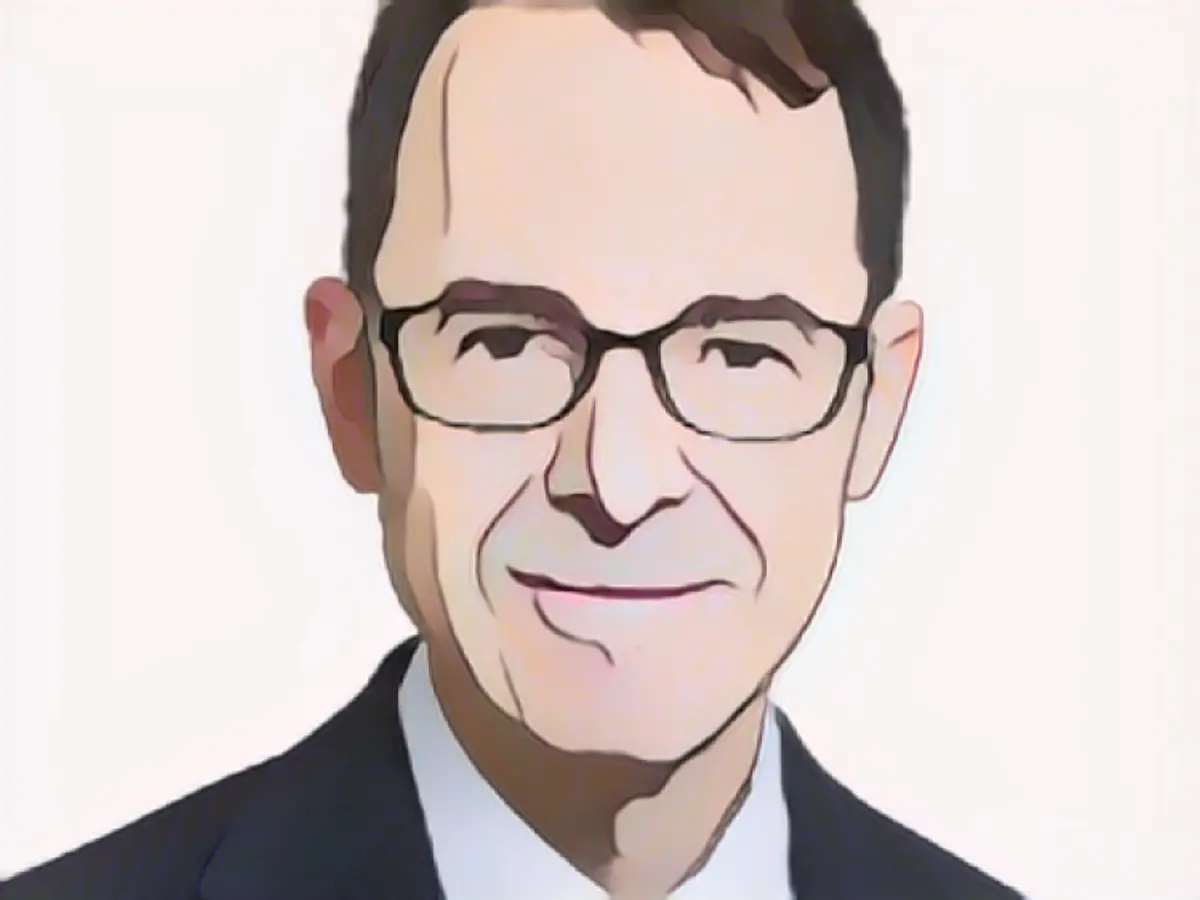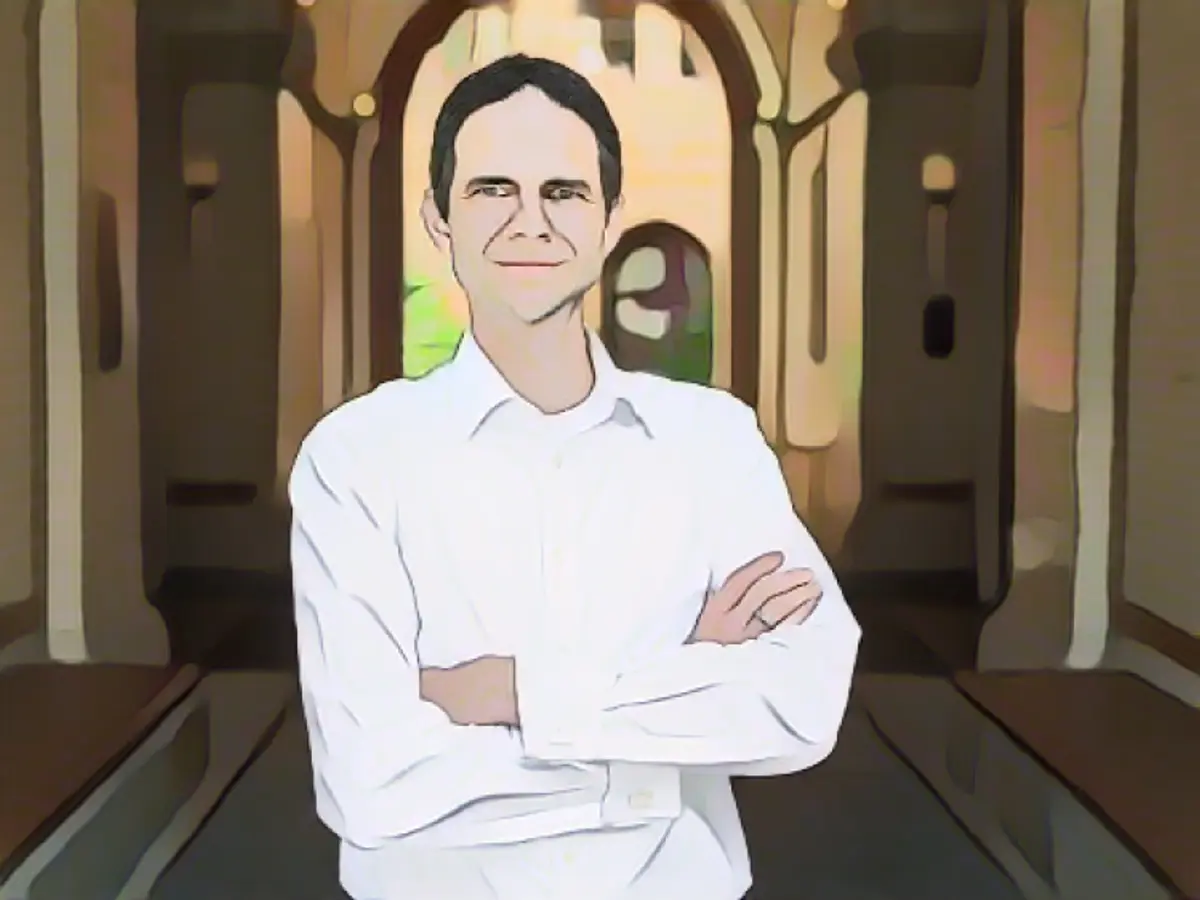The best investments for 2024
Bonds are making real money again. This means that there is no longer no alternative to equities. On balance, oil has weakened slightly this year, while gold has strengthened significantly. ntv.de asked four experts about the outlook for next year.
ntv.de: Interest rates on ten-year US government bonds have risen by around half a percentage point this year. Their prices have fallen accordingly. Will this trend continue in the coming year or will we see a turnaround in interest rates?

Oliver Zastrow: In the event of a robust upturn, the US Federal Reserve would probably leave interest rates high. In the event of a hard landing for the economy, the expectation of interest rate cuts in the near future could prove to be correct.
Michael Wittek: First of all, it should be noted that the downward trend in yields, which has lasted for around 40 years, was broken upwards a few months ago. In this sense, the first major turnaround in interest rates has already taken place.
Reinhard Pfingsten: For German ten-year government bonds, we still see a slight rise in yields until the middle of the year, before returning to roughly where we are today towards the end of the year. We also do not rule out minimal yield increases for ten-year US government bonds for the time being, but expect yields to be below the current level by the end of the year.
ntv.de: US government bonds with a ten-year maturity are currently yielding more than four percent. They are considered virtually default-proof. Is it still worth investing in shares?

Pfingsten: Equities still have their raison d'être even in times of higher yields. From an economic perspective alone, the return on equity, i.e. shares, should always be higher than the return on debt, i.e. bonds. The risk premium can vary over time, but on average it should be around three to four percent.
Wittek: In the past, the equity markets have always delivered the best performance over a multi-year period. I see no reason why this should change.
Zastrow: With good creditworthiness, i.e. a low probability of default, bonds are currently at least as attractive as equities and, against the background of a risk/return assessment, even more exciting in the short term. However, despite all the uncertainty on the market, diversification is the measure of all things, so shares, gold and other asset classes should also be included in the portfolio.
ntv.de: The US Federal Reserve has paused raising key interest rates for the time being. Many investors now expect the first interest rate cuts in 2024. How likely is that?

Marco Herrmann: The inflation rate is clearly on the decline and is now well below the Fed Funds Rate, which is the US key interest rate. Although the downward trend is quite encouraging, the central bankers are not yet declaring victory in the fight against inflation, as generous wage settlements could trigger second-round effects. Moreover, the two percent inflation target has not yet been reached.
Pfingsten: I take a similar view. The central banks have had to learn in recent years that underestimating inflation can quickly undermine the credibility of monetary policy. The monetary authorities will therefore prefer to loosen the interest rate reins a little too late rather than too early.

Wittek: It is very likely that the Fed will lower interest rates. But it is unclear whether this will happen later rather than sooner. Some rate cut optimists could get nervous in the meantime.
Zastrow: I'm a little more optimistic. Our baseline scenario - assuming inflation rates continue to fall and the labor market remains stable - sees a high probability of the Fed cutting interest rates for the first time in the first or second quarter of 2024.
ntv.de: The inflation rate has fallen noticeably recently. Interest rates should actually be coming back now. That would mean rising bond prices. Is it advisable to buy a broadly diversified bond ETF, for example?
Herrmann: The recent yield peaks in the USA at five percent and for German government bonds at three percent have recently marked cyclical highs. We expect yields to fall in 2024 - the yield on the ten-year German government bond is likely to fall towards two percent and the ten-year US government bond should only yield just under four percent at the end of 2024. In the case of government bonds and solid corporate bonds with good credit ratings, we prefer direct investments in order to be able to better manage the average remaining term of the bonds.
Pfingsten: Yes, key interest rate cuts are in sight, but only towards the middle of the year and even then rather hesitantly. Investors should therefore be aware that the start of the year could still be characterized by setbacks in the bond market before prices start to rise as the year progresses.
Zastrow: "Bonds of good quality and with longer residual terms could yield very attractive returns next year if interest rates actually fall. The possible vehicles here are diverse. Individual bonds, ETFs or even good actively managed funds can be interesting here - after weighing up the investor's interests.
ntv.de: What about fixed-term deposits - they can also generate returns. Is this an alternative to bonds?
Wittek: In my opinion, fixed-term deposits are only advisable at the beginning of a path of rising interest rates. However, we are at the end of the interest rate hikes. The bond market currently offers higher returns than traditional bank fixed-term deposits.
Pfingsten: But fixed-term deposits are now also offering opportunities again. However, they are more of an investment vehicle for shorter periods. In addition, investors should not just be dazzled by the higher interest rates that some banks put on display, but should also always critically scrutinize the provider's creditworthiness. Here too, the yield is not given away by the banks, but can also be interpreted as a measure of the risk to be taken.
Herrmann: The banks are very stingy when it comes to deposit interest rates, which means that short-term German government bonds are usually the better choice for investors - provided that the trading costs are low.
ntv.de: Let's move on to commodities. Oil has been rather disappointing this year. Despite the empty warehouses in the USA and the wars in Ukraine and the Middle East, the price has only moved sideways with major fluctuations. How can this be explained?
Wittek: The oil market is already pricing in a slowdown in the economy. Coupled with the increasing production in the USA through so-called fracking, the market is worried that supply will be too high next year.
Herrmann: That is in line with our assessment. As we know, supply and demand determine prices. Both put pressure on the oil price. In the USA, shale gas production is running at full speed and Russian oil is also continuing to find its way onto the global market. At the same time, the global economy is only making slow progress. In particular, the former engine of growth, China, is stuttering.
ntv.de: If there is a recession - especially in the USA or China - industry will produce less and demand for fossil fuels could fall. Is this a likely scenario for 2024?
Zastrow: If you then add the energy transition to the equation, the answer should logically be "yes". However, the truth is that the overall demand has been relatively constant for years, as the amount that is primarily being saved by developed countries is being consumed elsewhere. As a soft landing is expected for 2024 and fiscal measures in China may stimulate the economy there, it is unlikely that demand will fall. We expect a slight increase.
Herrmann: According to the International Monetary Fund, global gross domestic product should grow by three percent in 2024 and thus at a similar rate to 2023. We therefore do not anticipate a slump in demand.
Wittek: I'm talking about the probability of a coin toss here. If the recession comes, the oil price will fall. However, in my opinion, it will recover much faster than in previous periods.
ntv.de: Gold, on the other hand, has benefited greatly from the geopolitical flashpoints and uncertainties. However, the rise in interest rates has increased the so-called opportunity costs for the interest-free precious metal. Do the opportunities outweigh the risks for gold?
Pfingsten: With the recent price rise to a new all-time high at the beginning of December, the hurdle for gold to realize further price gains in 2024 has been raised. If, as we expect, interest rates fall more slowly and growth holds up better than many economists are forecasting, the environment for gold would be challenging.
Wittek: But gold is and will remain a basic investment in a broad-based portfolio, regardless of short-term price fluctuations.
Zastrow: Gold is not available in unlimited quantities; annual production volumes have been stable at a low level for years. Conversely, however, industrial demand is increasing, as is material demand, which should speak in favor of rising gold prices.
Herrmann: In addition, the central banks of the BRIC countries, i.e. Brazil, Russia, India and China, have started to invest in gold rather than US government bonds for their currency reserves. Finally, the slightly weaker US dollar is expected to lift the gold price above the 2,000 US dollar mark on a sustained basis.
ntv.de: Real estate prices have continued to fall. However, mortgage interest rates are still at a higher level. Is now the right time to invest in concrete gold?
Zastrow: The right time is definitely approaching. The focus here should be on residential real estate. The acquisition costs for a property or plot of land are crucial here. We have seen a considerable downward trend here over the past twelve months. Compared to the valuation two years ago, properties have lost 20 to 50 percent of their value
Wittek: The real estate sector is suffering from a continuing wave of order cancellations. This will lead to even more shortages in the coming years, which will tend to mean higher prices. If you don't have the financial means to invest in real estate alone, you can think about real estate shares.
Herrmann: There have been worse times to invest. In addition to location, location, location, it is also important to pay attention to the energy efficiency of the property. There is nothing wrong with an owner-occupied property. In the case of rental properties, you have to reckon with government intervention and take into account the administrative work involved and the possible stress with tenants.
ntv.de: Cryptocurrencies seem to have become somewhat quieter. Do you invest here for your customers?
Pfingsten: No, we neither invest in cryptocurrencies for our clients nor do we offer trading for them. For us, cryptocurrencies are highly speculative and their price development cannot be reliably predicted.
Zastrow: We don't invest any money in Bitcoin and Co. for our customers either.
Herrmann: Only a handful of our clients are interested in the topic. It therefore plays no role in our asset management.
Wittek: We haven't invested in cryptocurrencies for our clients yet either.
ntv.de: Which asset classes do you recommend for the coming year?
Wittek: Avoiding mistakes plays an important role in the coming stock market year. It would be a mistake to focus on just one asset class.
Zastrow: Bonds seem attractive right now in the interest rate plateau. But so does quality on the equity side. In addition to well-diversified liquid investments, further diversification into illiquid investments such as private equity or real estate is of course also a good idea, given the appropriate asset size.
Herrmann: We remain overweight in equities and are sticking to our selection of high-growth technology stocks and defensive stocks. European equities should be ahead due to their significantly lower valuation, but US companies often rightly command a premium due to their strong market position. As the interest rate peak on the bond market is probably already behind us, longer maturities now make sense again in order to secure the current yields for the coming years. Of course, a good portfolio diversification also includes a one to five percent share of gold.
Pfingsten: In addition to the concrete gold you mentioned earlier, equities and bonds are classic examples. After years of increased market volatility due to economic, interest rate and geopolitical uncertainties, the starting position at the beginning of 2024 is unusually new. Negative interest rates are history and bonds are once again attracting high yields. Equity market valuations are also more attractive than the average of recent years, at least outside the USA.
This publication is for information purposes only and for use by the recipient. It constitutes neither an offer nor a solicitation by or on behalf of Albrecht, Kitta & Co. Vermögensverwaltung GmbH, Deutsche Apotheker- und Ärztebank, FIDUKA Depotverwaltung GmbH and Qcoon GmbH to buy or sell securities or investment funds. The information contained in this publication has been compiled from sources believed to be reliable. However, Albrecht, Kitta & Co. Vermögensverwaltung GmbH, Deutsche Apotheker- und Ärztebank, FIDUKA Depotverwaltung GmbH and Qcoon GmbH make no representation as to its reliability or completeness and disclaim any liability for losses arising from the use of this information.
Read also:
- This will change in December
- Attacks on ships in the Red Sea: shipping companies avoid important trade route
- Houthi rebels want to launch further attacks despite international coalition
- USA forms military coalition against Houthi attacks on ships in the Red Sea
- Based on the experts' predictions, bonds are expected to generate real returns again, which makes equities less attractive as an alternative.
- According to Oliver Zastrow, the US Federal Reserve might keep interest rates high during a robust economic upturn, but could reduce them if the economy experiences a hard landing.
- Michael Wittek suggests that the first major turnaround in interest rates has already occurred, considering the upward trend in yields that broke the 40-year downward trend.
- Reinhard Pfingsten predicts a slight rise in German and US ten-year government bond yields until the middle of the year, then a return to their current levels by the end of the year.
- When asked if equities are still worth investing in with higher yields on US government bonds, Reinhard Pfingsten asserts that equities have their justification even in times of higher yields due to their economic return.
- In light of higher yields, Marco Herrmann advises investors to focus on government bonds and solid corporate bonds with good credit ratings for better yield management.
- If the US Federal Reserve implements interest rate cuts as expected towards the middle of the year, Michael Wittek cautions that investors may become nervous in the interim.
- Regarding the inflation rate's decline, Marco Herrmann mentions that the Fed will be cautious about lowering interest rates, as underestimating inflation risks undermining monetary policy's credibility.
- The DAX, Germany's leading stock market index, could benefit from potential interest rate cuts, as low interest rates often boost stock market performance.
- China, one of the world's major economies, may take steps to stimulate its economy and prevent a recession, which could positively impact the commodities market, including fossil fuels.
- Gold, as a safe-haven asset, could witness fluctuating prices, as its price is influenced by various factors, such as geopolitical uncertainties, interest rates, and market sentiment. Investors should always consider the risks and opportunities when considering gold as an investment option.
Source: www.ntv.de







